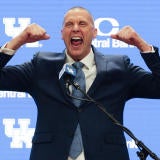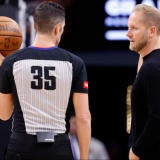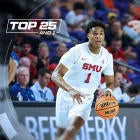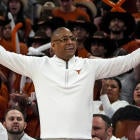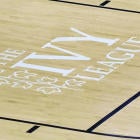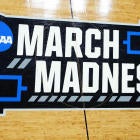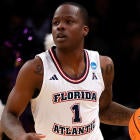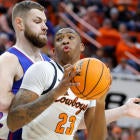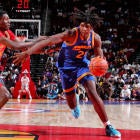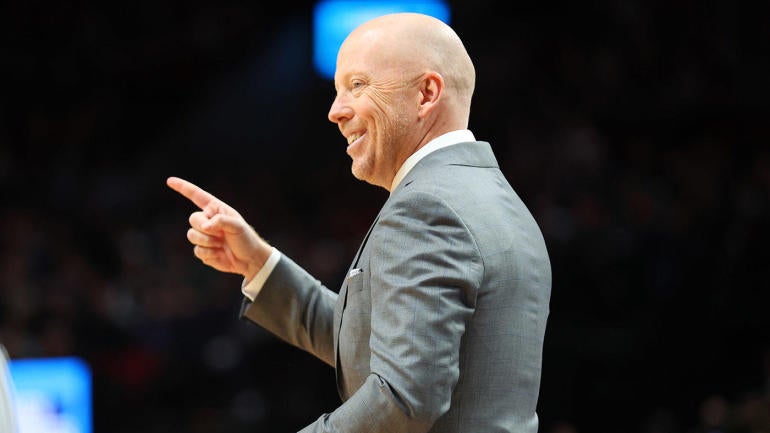
A lot of sports fans crave hyperactive instant reaction to so many facets of the news cycle. Patience barely exists in this cacophonous environment we've built up for ourselves, unfortunately.
But some things take time.
Here's a thought: How about letting nature play its course and then circling back for a levelheaded evaluation on coaching hires? Absurd concept, right? I've been doing it for seven years now. The time has come again. Yes, four years removed from the noisy 2019 carousel, it's time to hand out grades.
Now that we've had four seasons (and more than 100 games) to see how these guys recruit, coach, handle the pressure, work the portal and navigate their way around big-time programs, it's more than fair to break out the red pen. (If you'd like to see previous report cards, here are my four-year evaluations from hirings made in 2013, 2014, 2015, 2016, 2017 and 2018.)
This year's crop is up, and by this year, I of course mean 2019. And if you'd like the full reminder on all the guys who were hired four years ago, take a gander at that list here. At the bottom of this story, I've got a short list of mid-major shoutouts as well; 2019 was a pretty consequential year, it turns out. It was certainly a significant one for power-conference turnover. Here are the 13 high-major changes from that year and how they've fared in the 48 months since.
Grading 2019's notable coaching hires
Nate Oats, Alabama
Alabama has potential for its greatest stretch of success in program history under Oats. The Crimson Tide are 92-41 (.692) over the past four years, with a 49-23 SEC mark and two first-place finishes in league play. Oats has coached Alabama to two Sweet 16s, but he had a one-and-done tournament showing in 2022. His first year was trial-and-error, but the past three have been good-to-great on the floor.
Off the floor, there is one major mark against his reputation. Oats mishandled the Brandon Miller/Jaden Bradley situation — and, of course, former Alabama player Darius Miles has been charged in a capital murder case. Oats' fumbling of the issue was a PR wreck, and he appropriately gets dinged for that here. Being a head coach is more than just wins and losses, and I can tell you that some coaches in the industry do not respect Oats as they once did for how he handled matters last season. Grade: B+
Eric Musselman, Arkansas
Arkansas basketball is in something of a renaissance at the moment. Under Musselman, the program is 95-42 (.683) and recruits NBA-level prospects. His first year the Razorbacks were a bubble team, but it's been good ever since. Musselman has not won an SEC title but finished second and fourth in his middle two seasons. Most importantly, he ended Arkansas' baffling Sweet 16 drought in 2021; that March, the Hogs won two NCAA Tournament games in the same year for the first time since 1996. Arkansas has two Elite Eights and a Sweet 16 to its name under Muss, who has also been a portal connoisseur. After a rickety run to a 9-seed in the SEC Tournament, Arkansas nonetheless upset No. 1 seed Kansas to make the Sweet 16 in March. It took a long time, but Arkansas is finally back to where it should be on the national scene. Grade: A-
Mark Pope, BYU
It started well but it's cooled off as of late for Pope, who I could see coaching the next 10 years at BYU or hitting it big and winding up at a top-25 job in the next few years. We'll see. BYU is making the move from the WCC to the Big 12 in two months, and it's going to be interesting to watch Pope as he tries to pivot for the major step up. He's 85-40 (.680) and has had two NCAA Tournament-level teams (would have easily made it in 2020). The Cougars were 39-21 (.650) in the WCC the past four seasons, this last one being the low point so far. Grade: B-
Mark Fox, Cal
Cal is a tough high-major job, but Fox barely did much, going 38-87 (.304) and keeping the Bears in irrelevance all four years. The nadir was a 3-29 shoe-vomiting final season, the worst in the school's history. There's not a lot to say here, really. Fox replaced Wyking Jones, who was given half as long and failed on the same scale. The job is no better now than it was five years ago. It's certainly worse than it was 10 years ago. Grade: D-
John Brannen, Cincinnati
Every so often, this exercise shows how misfires can easily crop up in the hiring process. Brannen's been gone from Cincinnati for two years. Record/win percentage-wise, he did better in those two years than a lot of guys in this cycle. UC was 32-20 (.604) overall and finished tied for first in the American in Brannen's first season. But there was dysfunction behind the scenes, and with less than month remaining before the end of the 2020-21 season, Brannen's ouster felt inevitable.
UC claimed he "made, attempted, arranged or otherwise made payment for special benefits for a student-athlete other than through approved channels; intimidated and/or attempted to intimidate students from raising proper compliance concerns." The school cut ties and hired Wes Miller in 2021 to succeed him. Winning 60% of his games in two years means this was not an outright failure, but obviously it can't be called a success, either. Grade: C-
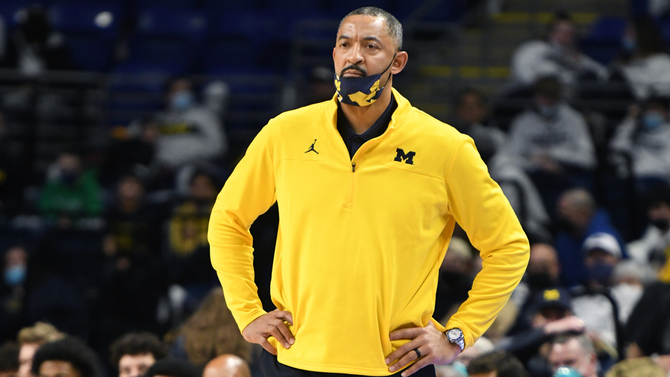
Juwan Howard, Michigan
Some good and some bad for the program legend. Howard holds a 79-48 record (.622) and has watched over two sure-fire NCAA Tournament teams in his four years. In 2021, Michigan was a top seed in the tourney and made the Elite Eight. Plus, the program has recruited fairly well, though arguably not quite at the level some might have thought when Howard came aboard. Michigan has finished everywhere between first and ninth in the Big Ten over the past four years and is 46-31 overall. Hunter Dickinson, the best recruit in the Howard era, just left for greener pastures. Jett Howard is also gone after just one year, thanks to his tempting NBA upside. There was also that embarrassing fracas involving Wisconsin in 2022, something that unfortunately has sticking power. It's been good, but can still get better. Grade: B
Fred Hoiberg, Nebraska
When Hoiberg went to Iowa State, he had a bevy of skeptics. He proved those people wrong by winning 67% of his games and making four NCAA Tournaments in five seasons. The idea for Nebraska was to get a lot of that success, even while understanding that getting this program to ISU-type levels was probably asking too much. Four years in, it's been shoddy, even by NU standards: 40-83 (.325) and Hoiberg is yet to finish 11th or better in the Big Ten. League record: 18-61. This past season was the best yet (16-16, 9-11), but he'll need to -- at minimum -- equal that in Year 5 to stave off a firing. Grade: D+
Mike Anderson, St. John's
Anderson is not yet enjoying his post-St. John's life. Instead, he's currently going through litigation for money owed to him after the school attempted to fire him with cause. Millions upon millions of dollars hang in the balance. The reason he's in this spot — aside from SJU's mega-thirst for Rick Pitino — is never making the NCAAs in his four seasons with the Red Storm. Anderson's record was alright (68-46) and the team finished above .500 every season. In the Big East, a different story: 30-46 vs. league foes. It was a weird fit that seemed doomed for a short marriage. Grade: C
Buzz Williams, Texas A&M
Williams probably registers among the 30 biggest names in college basketball coaching, and yet he's moving along in some obscurity in College Station. His record the past four seasons is above average: 76-47 (.618). In that span, Texas A&M has one NCAA tourney, and it finished sixth or better in three of his four seasons in SEC play. The league overall record isn't great, though (36-38). After barely missing the 2022 NCAAs, Williams coached the Aggies to runner-up status in the NIT. I could see this union lasting anywhere from another 1-7 years. I'm sure the school — which doesn't make the Big Dance with regularity — feels fortunate to have him. Grade: B
Mick Cronin, UCLA
UCLA is in the midst of its best three-to-four-year stretch since Ben Howland took the Bruins to the Final Four three years in a row in the mid-to-late aughts. Cronin has been terrific, holding a 99-36 (.733) record and claiming an NCAA Tournament-level team in all four seasons. He's also kept UCLA near or at the top of the Pac-12, as it should be every season. The Bruins are 57-19 in the league and just won their first regular-season title under Cronin. They made 2021 Final Four after squeaking into the field as an 11-seed. The past two seasons, Cronin has coached UCLA to No. 2 and 4 seeds, all while recruiting at a high level and losing few players to transfer. To think: He wasn't even one of the first five names on the school's list four-plus years ago. Now this is easily a top-10 program, back where it should be. Grade: A-
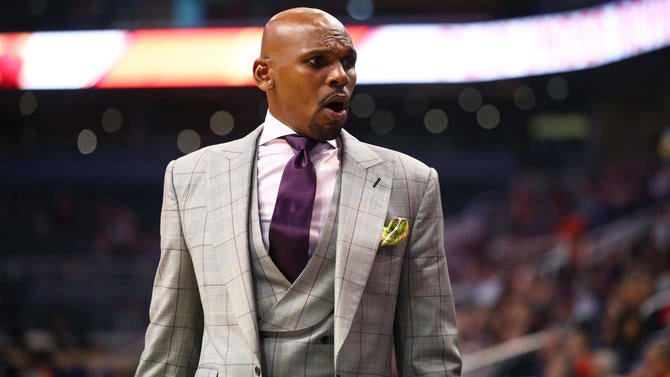
Jerry Stackhouse, Vanderbilt
Not an easy one to grade here. When he got the job, Stackhouse was the rare man who inherited a power-conference team that had gone winless in league play the year before. He's done a solid job in pushing Vandy back into SEC competitiveness as of late. Overall, the school is 61-69 (.469) the last four years. In the SEC, Stackhouse is 24-46 at one of the three toughest jobs in the conference, having finished 11th, 13th and 14th in his first three years, but tying for fourth last season. Though he came close in March, he still hasn't made an NCAA Tournament. Vandy's 4-2 in the past two NITs. He needs a star to get the team back to relevance. He's also been attached to the Raptors opening, but I believe he'll be back in Nashville for Year 5. Grade: C
Mike Young, Virginia Tech
It was Wofford's 30-5 season (that led to a second-round NCAA appearance) in 2019 that gave Young this opportunity. He's done well, posting a 73-51 (.589) record, though the ACC performance hasn't been as rosy (35-38). If you make the NCAA Tournament two out of every four years at Virginia Tech, you're on your way to being the best coach in program history. Young's two-for-four so far, both one-and-done showings as double-digit seeds. It was a good hire, and I think the 60-year-old rides out the next 5-8 years in Blacksburg. He'll retire having made this a better job. Grade: B-
Kyle Smith, Washington State
When realignment officially takes its next shape on July 1 (the Big 12 will expand this year before the SEC and Big Ten do so in 2024), there will be a clean 80 schools in the Big Six conferences. Of those 80, Washington State's desirability would rank in the bottom five, so keep that in mind when I say Kyle Smith's 69-61 record (.531 win percentage) is admirable. Smith came by way of San Francisco, and though he's yet to make an NCAA Tournament, the Cougars have posted back-to-back seasons of fifth-place finishes in the Pac-12. (Overall league record: 35-42.) Smith's lost some good players to transfer, but in spite of that, Wazzu has finished .500 or better in all four of his seasons. Grade: C+
Mid-major notables from 2019
There was a good run on mid/low-major hires four years back. The coaches listed below all exceeded expectations in the years since. Coaches with an asterisk have since moved on to bigger jobs:
• Dustin Kerns, Appalachian State
• Casey Alexander, Belmont
• Dennis Gates, Cleveland State*
• Rob Lanier, Georgia State*
• Amir Abdur-Rahim, Kennesaw State*
• Danny Sprinkle, Montana State*
• Darrin Horn, Northern Kentucky
• Jeff Boals, Ohio
• Todd Golden, San Francisco*
• Eric Henderson, South Dakota State*
• Mark Madsen, Utah Valley*








